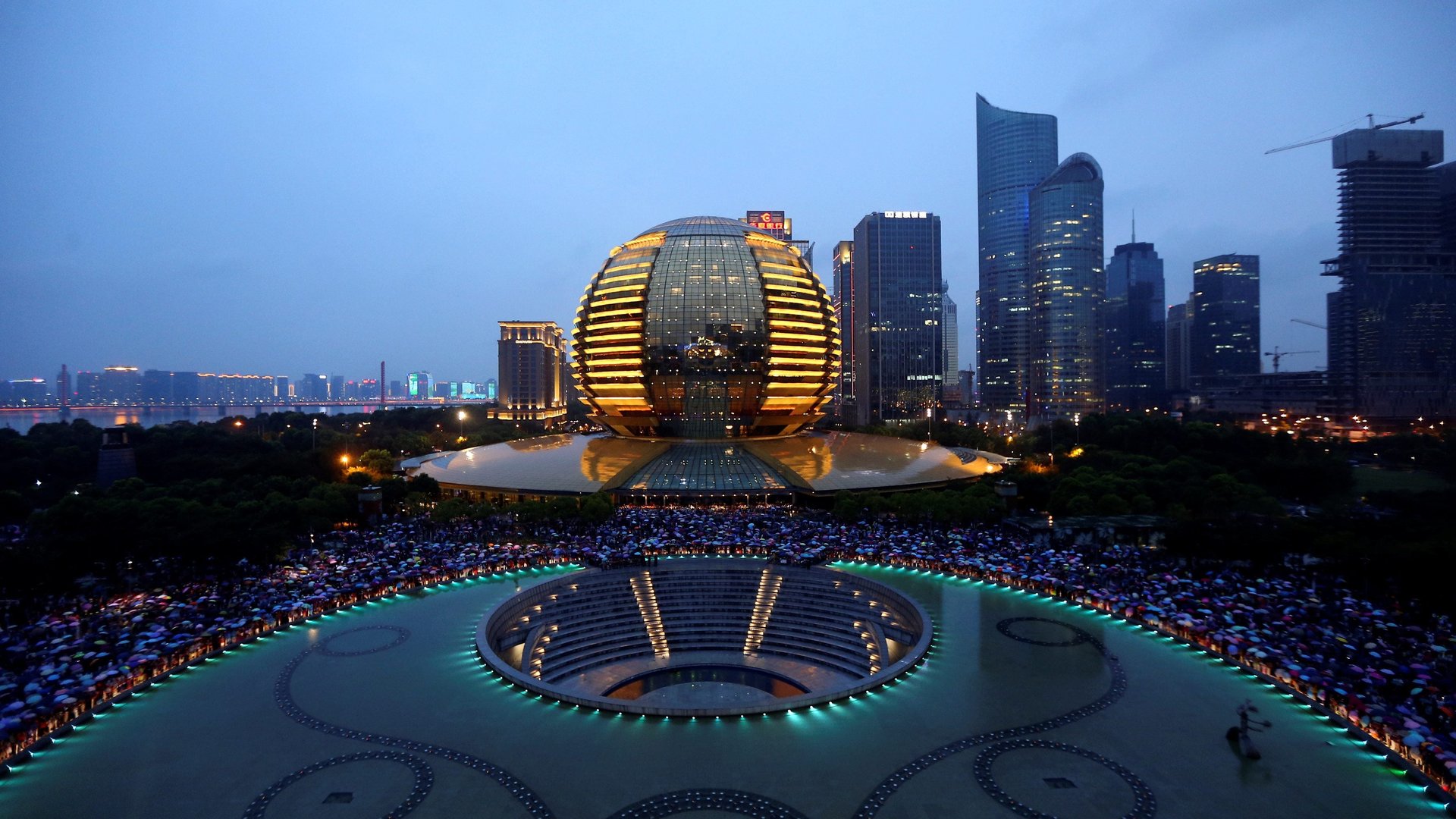Hangzhou, China’s G20 host city, sold over $1 billion worth of homes on Sunday
Earlier this month, the world’s state leaders attended the G20 summit in the eastern Chinese city of Hangzhou, about 100 miles from Shanghai. Their arrival was accompanied by an ephemeral blue sky, and appears to have been followed by a property boom.


Earlier this month, the world’s state leaders attended the G20 summit in the eastern Chinese city of Hangzhou, about 100 miles from Shanghai. Their arrival was accompanied by an ephemeral blue sky, and appears to have been followed by a property boom.
On Sunday (Sept. 18), 5,105 homes were sold in Hangzhou’s downtown, a record number for a single day in the second-tier city, figures (link in Chinese) from local housing authorities show. More than 3,200 were new homes and 1,800 were pre-owned.
Here’re some figures that help to put that into context: In August, the average new home price in Hangzhou was 181,00 yuan per square meters ($250 per sq ft), and the average unit sold was 100 sq m, according to data compiled by Shanghai’s E-house China R&D Institute, which tracks China’s property market. Using those averages, Sept. 18’s total home sales could be worth 9.2 billion yuan (about $1.4 billion). That is one third of August’s total new home sales.
The overnight buying frenzy came after hastily-called government controls over Hangzhou’s housing market were announced. On Sunday, the city’s housing department said at around 5pm that families who are not registered as Hangzhou residents and already own one or more homes in the city (excluding six suburbs) would be banned from buying another home in the area. The restriction goes into effect (link in Chinese) today (Sept. 19).
Homebuyers lined up at developers’ sales outposts in Hangzhou until midnight, and some sales agents rushed to Shanghai overnight—with their POS machines—to secure deals with clients, state newspaper Guangming Daily reported (link in Chinese).
Non-local residents made up of 34% of Hangzhou’s home sales in August, rising to 39% in the first week after the G20 meeting, the city’s housing department said in an interpretation (link in Chinese) of the new sales restriction. The successful G20 summit attracted more non-local homebuyers to Hangzhou. There is a “sign” of over-investment and speculation, Yu Xiaofeng, a professor with Zhejiang University of Technology’s real-estate studies center, noted in the official interpretation.
The average new-home price in Hangzhou increased 22% in August from a year earlier, outpacing the 9.2% average growth in 70 major cities surveyed by the National Bureau of Statistics (link in Chinese). China’s latest lending data also show that over half of new bank loans were funneled to homebuyers last month. China’s new housing boom is now rippling into second-tier cities as authorities from Xiamen, Suzhou, and Wuhan tighten controls over second-home purchases earlier.
These sales restriction policies will “exacerbate the market panic… and even raise prices” in the short term, said Yan Yuejing, research director at E-house China R&D Institute. But over the long term, home-sales volumes will go down and prices will remain steady, he said.
Tom Tsui contributed reporting.